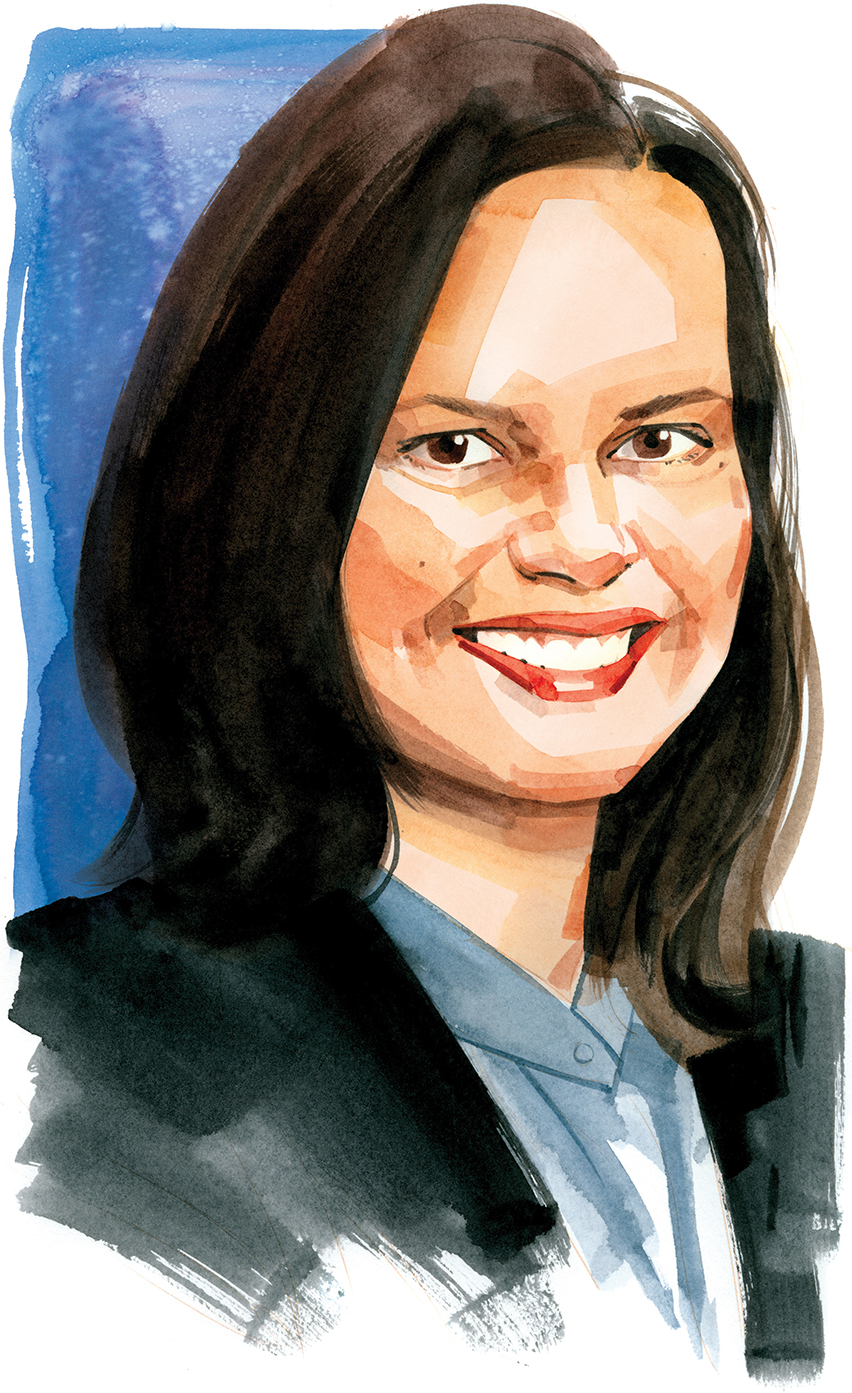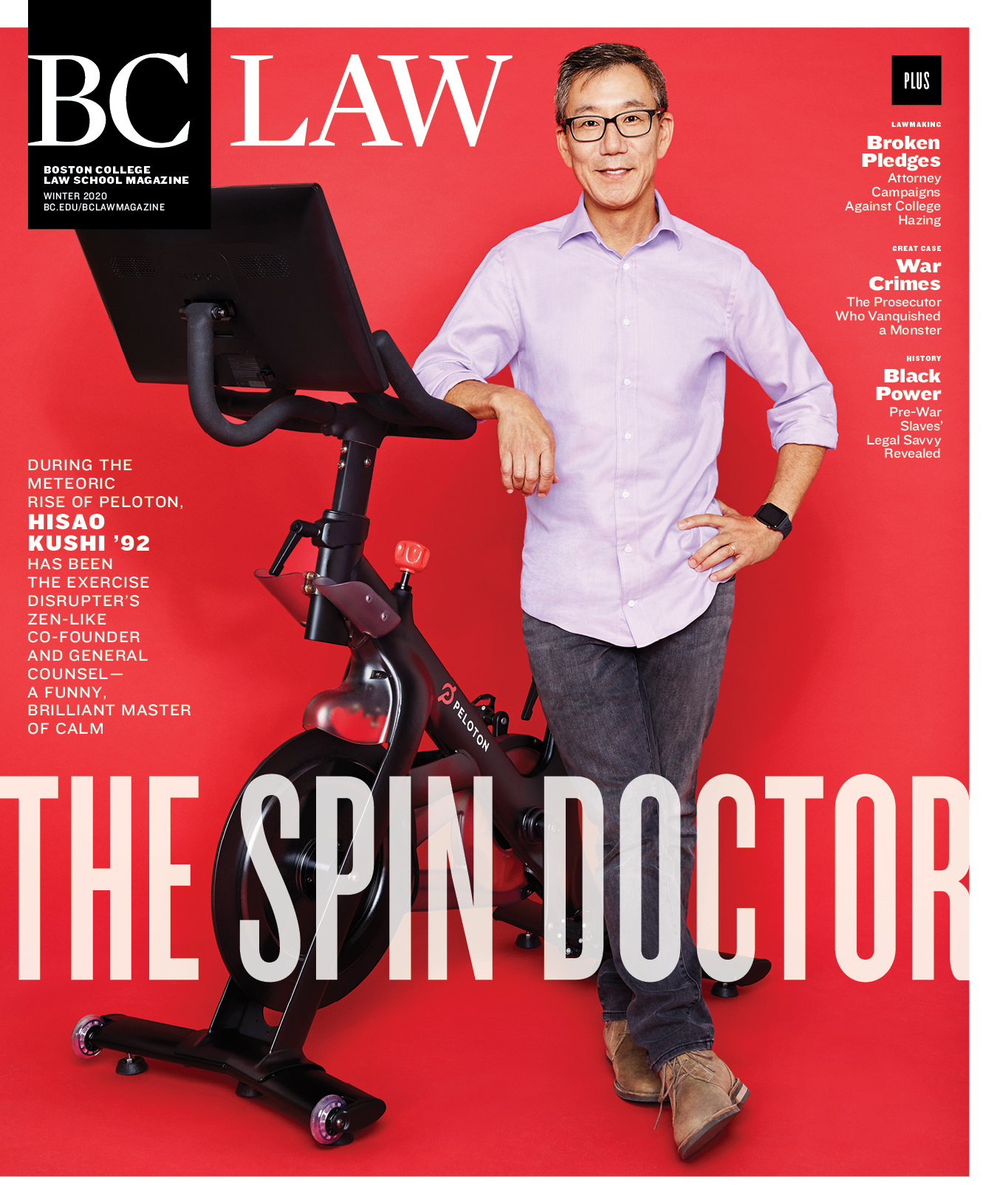 Pocket Résumé
Pocket Résumé
Degrees: BA, LLB (Hons), University of Melbourne; LLM and SJD, Harvard. Credentials: Clerk to Justice Michael Kirby, High Court of Australia, 2001-2002; Associate Professor, Australian National University, 2013; Associate Professor, Boston College Law School, 2013 to present. Writing: Articles in Boston University Law Review, Yale Journal of International Law, International Journal of Constitutional Law, Harvard Human Rights Journal, and others. Author, editor, and/or co-editor of four books.
The Idea: Access to food, water, health, housing, and education are as fundamental to human freedom and dignity as privacy, religion, or speech. Young shows how courts, legislatures, executives, agencies, and civil society can work together to reconcile such rights with democratic and market principles.
The Impact: Katharine Young’s scholarship in the relatively new field of economic and social rights has gotten huge attention, with citations in journals like the Harvard Law Review, Stanford Law Review, and Yale Law Journal. One article alone was cited 322 times and reprinted in three book-length collections. Meanwhile, her book Constituting Economic and Social Rights (Oxford, 2012), the first in-depth treatment of the field, received praise from the Harvard Law Review(“a powerful call to move from ideation to reality”), the Tulsa Law Review (“give[s] us new ways to think about the welfare state”), and academic stars such as the Nobel Laureate Amartya Sen (“a brilliant discussion of great importance to policy-making”) and Martha Minow, then the dean of Harvard Law School, who wrote the book’s foreword.
In the book, which examines legal systems worldwide but focuses on nations whose constitutions entrench basic economic and social rights, Young begins her discussion of the jurisprudence of economic and social rights by laying out a “typology of judicial review.” The types fall along a spectrum from extreme passivity (deferential review, wherein courts may find for a plaintiff but rely on moral suasion to effect a remedy) to extreme aggressiveness (peremptory review, where courts impose a solution from above, sometimes even rewriting statute law to bring it into compliance with a constitution). Deferential review, according to Young, may be seen as abdication of the court’s responsibility to protect rights, while peremptory review may be seen as usurpation by the court of the prerogatives of executives and legislatures.
Between deferential and peremptory review lie what Young calls “midway models”: conversational review (the court works with other government branches to craft a remedy) and experimental review (the court organizes and oversees a negotiation between the litigants and, often, other stakeholders, including academic experts, NGOs, and social justice movements). Using these models, a court can glide safely past the Scylla of abdication and the Charybdis of usurpation. The court, as Young puts it, catalyzes change, “forcing government to come up with a better approach [to honoring economic and social rights] without imposing that approach itself.”
“Once something’s called a right, it’s a kind of universalizing language that invites claim making, based on important values like dignity or freedom.” —Katharine Young
Young’s book also examines the role of social movements in helping courts, legislators, and government bureaus put flesh on the bones of economic and social rights as set out in constitutions and international human rights conventions. Young describes a campaign by a South African social justice movement that combined litigation with sit-ins, street protests, and media outreach in order to secure access to antiretrovirals for pregnant women under the constitutional right of health care.
Young herself took part in a similar process during her years in graduate school, when she interned with a social movement in a poor neighborhood of Accra, Ghana. The movement’s legal team, including Young, sued the government on behalf of a penniless man being held in detention—in hospital—because he couldn’t pay the user fee for his treatment.
The team filed a habeas corpus claim but came to understand that merely freeing the detainee would leave in place an unjust system. Even enforcing the former exemption for indigents would cause more problems than it solved, because Ghanaian hospitals depended on the fee for their financing. Like the South African social movement, the Ghanaian group based its claim on a constitutional right to health care. Combining litigation with agitation, the movement crafted an agreement with government to revamp the health care financing system, replacing user fees with community-based insurance.
Using narratives like these, Young argues that social movements can avoid the often-polarizing nature of distributive politics, while making demands for reasonable reform. “Once something’s called a right,” she says, “it’s a kind of universalizing language that invites claim making, based on important values like dignity or freedom.”
Such rights are now found in more than three-quarters of the world’s constitutions, and Young’s recent book collects case studies of the resulting campaigns, from the right to health care in Colombia, the right to food in India, the right to housing in South Africa, and even the right to education in US state constitutions. The experience of constitutional systems that do grant such rights challenges the conventional wisdom that hesitates to recognize them because courts will be seen as political and democracy damaged as a result. “The lesson,” says Young, “is that under certain conditions, the reverse may be true.”


